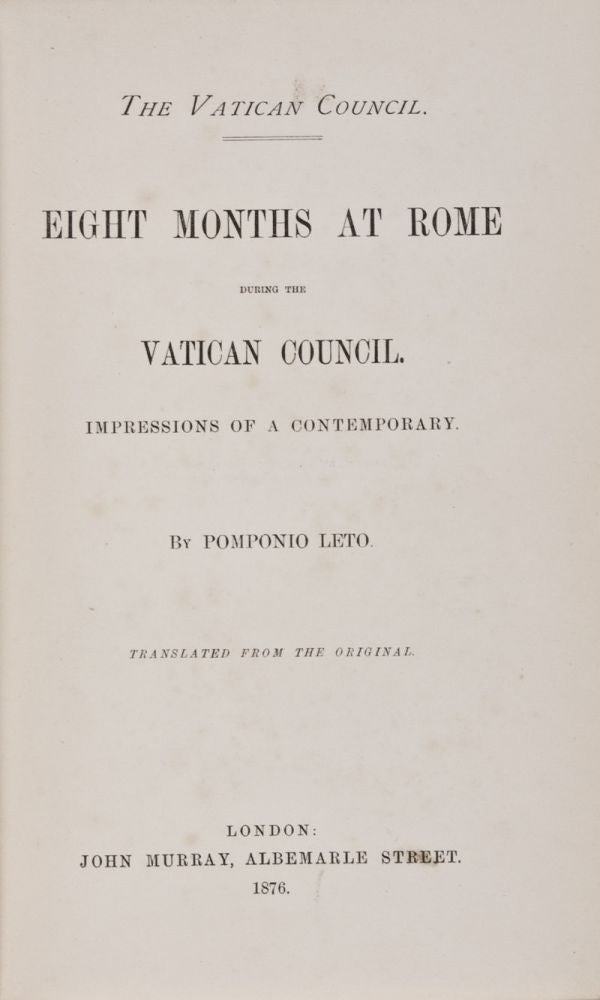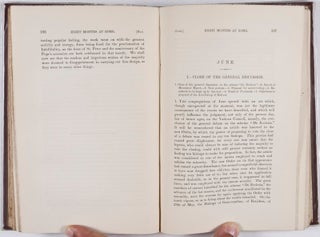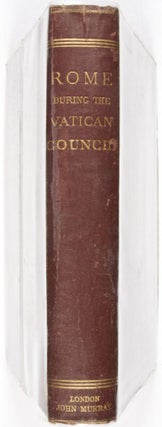Eight Months At Rome During the Vatican Council. Impressions of a Contemporary
London: John Murray, 1876. First English language edition. Hardcover. Quarto. XX, 340, 20pp. Uncut. Original red cloth with gold lettering on spine. Fascinating Memoirs of the Vatican Council by Francesco Nobili-Vitelleschi, in which the author treats rather of the influence likely to be exercised by the Council on the condition of the Italian people and their religious state. Minor rubbing along edges. 1.5" closed tear on lower back joint. Binding in overall good, interior in very good condition. g. Item #28380
About the First Vatican Council:
The First Vatican Council was convoked by Pope Pius IX on 29 June 1868, after a period of planning and preparation that began on 6 December 1864. This twentieth ecumenical council of the Roman Catholic Church, held three centuries after the Council of Trent, opened on 8 December 1869 and adjourned on 20 October 1870. Unlike the five earlier General Councils held in Rome, which met in the Lateran Basilica and are known as the Lateran Councils, it met in the Vatican Basilica, hence its name of First Vatican Council. Its best-known decision is its definition of papal infallibility.
According to Raffaele De Cesare:
The first idea of convening an Ecumenical Council in Rome to elevate the temporal power into a dogma, originated in the third centenary of the Council of Trent, which took place in that city in December, 1863, and was attended by a number of Austrian and Hungarian prelates. However, following the Austro-Prussian War, Austria had recognized the Kingdom of Italy. Consequently, because of this and other substantial political changes: "The Civiltà Cattolica suggested that the Papal Infallibility should be substituted for the dogma of temporal power ..." The Council was convoked to deal with the contemporary problems of the rising influence of rationalism, liberalism, and materialism. Its purpose was, besides this, to define the Catholic doctrine concerning the Church of Christ. There was discussion and approval of only two constitutions: the Dogmatic Constitution on the Catholic Faith and the First Dogmatic Constitution on the Church of Christ, the latter dealing with the primacy and infallibility of the bishop of Rome. The first matter brought up for debate was the dogmatic draft of Catholic doctrine against the manifold errors due to Rationalism.
Price: $95.00



